The Religious Society of Friends has a proud record of being on the right side of history on many issues of peace and social justice. We are pretty good at raising queries and challenging ourselves to do better. And one of the questions many of us have heard is “Where are all the young people?”
As a relatively young Friend who first learned about Quakerism in my early 20s, I love this question. While I certainly can’t answer it fully or speak on behalf of all young people, I think my Quaker origin story may provide some ideas for how we can cultivate a sense of belonging in young adults who wander their way toward the Religious Society of Friends. (How we go out into the world and bring them in is an important topic for another essay!)
I encourage you, reader, to accept my invitation to reflect on your own path. How did you come to Friends? And who are young people in your networks you can reach out to and hear their thoughts about bringing young folks into the lives of our meetings?
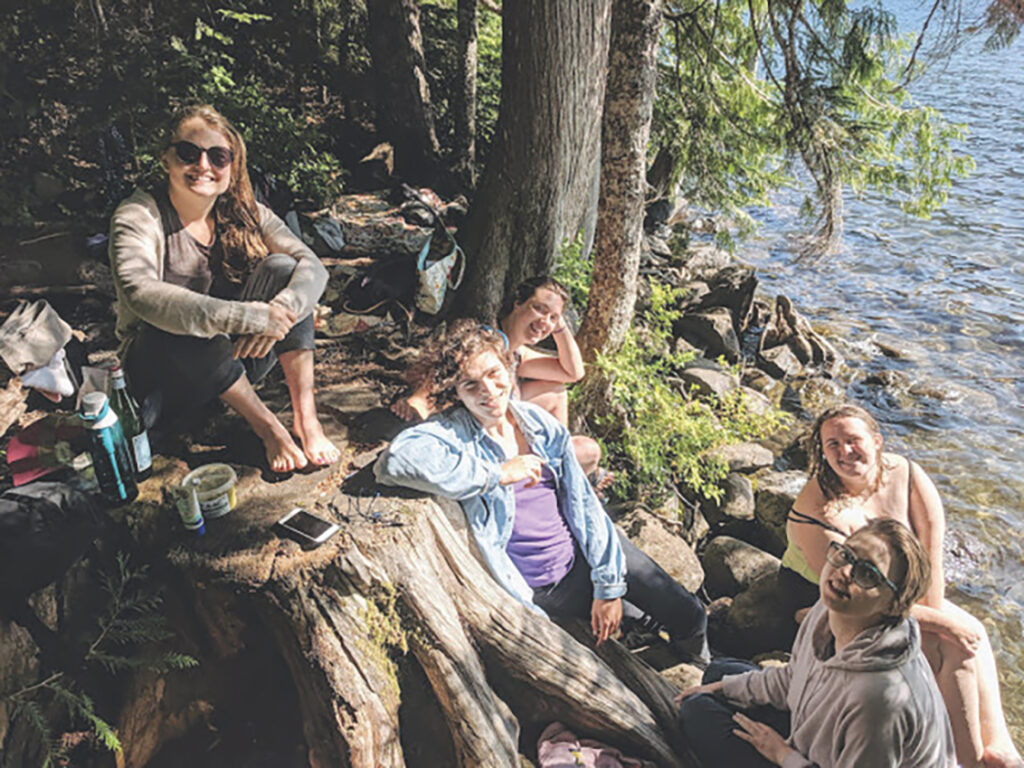
Also before we dive in, I want to add two layers to the conversation. First, I don’t think I’m alone in initially viewing our Society as a small, somewhat exclusive, and intertwined community that evokes curiosity and insularity. Despite my experiences with a variety of Quaker institutions and organizations, I still feel a hint of imposter syndrome to this day. This is a reality we ought to acknowledge head-on.
On the other side of the coin, it is not lost on me that my identity as a White, able-bodied, college-educated, youngish cisgender woman played a major role in making me feel more comfortable in Quaker spaces than others might have felt. For the purpose of this essay, I am focusing primarily on my identity as a young adult, but that is only a part of my experience. I welcome opportunities to reflect on these questions alongside other people who have different identities and lived experiences. And I think our queries about inclusion should consider this diversity of backgrounds and identities.
At each of the major crossroads in my life, I’ve embraced, both consciously and sometimes unconsciously, Quaker organizations and institutions. Upon reflection, one of the common threads in my journey that kept me returning to Quaker spaces again and again is the Quaker commitment to imagining and experimenting with creating a better world. It is among Friends that I have been most challenged and inspired to put my values into action. I have found the Society to be a space conducive to going outside the box. If you really believe that there is that of the Divine in every person, it will change how you see the world.
One of the common threads in my journey that kept me returning to Quaker spaces again and again is the Quaker commitment to imagining and experimenting with creating a better world. It is among Friends that I have been most challenged and inspired to put my values into action.
My Quaker journey started at Haverford College, a small liberal arts college grounded in Quaker ideas, located near Philadelphia, Pennsylvania. It wasn’t until later on in my time there that I realized the Quaker values foundational to the college had a lot to do with its being a good fit for me. The four years I spent at Haverford opened my eyes to a version of the world that could exist. We cultivated a tight-knit (although imperfect) community that was grounded in our shared commitment to an honor code and a genuine desire to learn and make the world a better place. In my time working at the Quaker and Special Collections at Haverford, I explored archives from influential Quakers who truly “let their lives speak,” such as those who chose to serve with American Friends Service Committee instead of the military.
While I was at Haverford, I served on the Honor Council, the student-run body that administers the honor code. When academic or social violations occurred, a group of peers came together to restore the values of trust, concern, and respect, and to imagine and implement opportunities to welcome back the student into the community. I didn’t realize at the time just how unusual our process was: unusual compared to the current prevailing systems of policing, punishment, and incarceration in the United States. We instead employed a consensus-based process grounded in education and community.
This being said, I do want to be careful not to romanticize Haverford too much. Harm did happen there. My peers of different races, ethnicities, genders, socioeconomic classes, and other backgrounds, experienced their time at the college differently from the way I did. And it is also true that the community I found there was incredibly nourishing and welcoming to me.
I experienced Haverford as a place where the people around me were up for imagining new ways of being. We were open to exploring just and humane ways to address harm. We cultivated a culture of trust via non-proctored exams, and we left our backpacks strewn about, not obsessively locked away. We made many decisions by consensus rather than always being dictated to by those at the top of the ladder. We co-created an environment conducive to imagination and growth.
So it was no surprise that I became Quaker-curious during my four years as an undergrad. Thanks to the Quaker Affairs Office at Haverford, I attended a conference for young adult Friends and seekers called “Continuing Revolution.” At that conference, held at Pendle Hill study center in nearby Wallingford, I had the opportunity to learn more about Quakerism, and it didn’t hurt to do so at a gorgeous campus with delicious food and friendly faces. The wholesome fellowship of singing folk songs by the fire filled a part of me that I didn’t know was empty (and made me jealous that I never attended a Quaker summer camp). Here again was a direct experience of being in community with people who were actively seeking to imagine the future. I’ve attended this annual conference a few times now, and every time I am inspired by the variety of ways that other young adults are truly living out their values. From thought experiments beyond capitalism to spiritually informed explorations of the abolition of prisons and policing, this conference has been a place for me to interrogate the underlying societal systems that cause tremendous harm. With the supportive spiritual grounding of Quakerism, we were able to take our conversations deeper than in any other social justice space I’d ever been a part of.
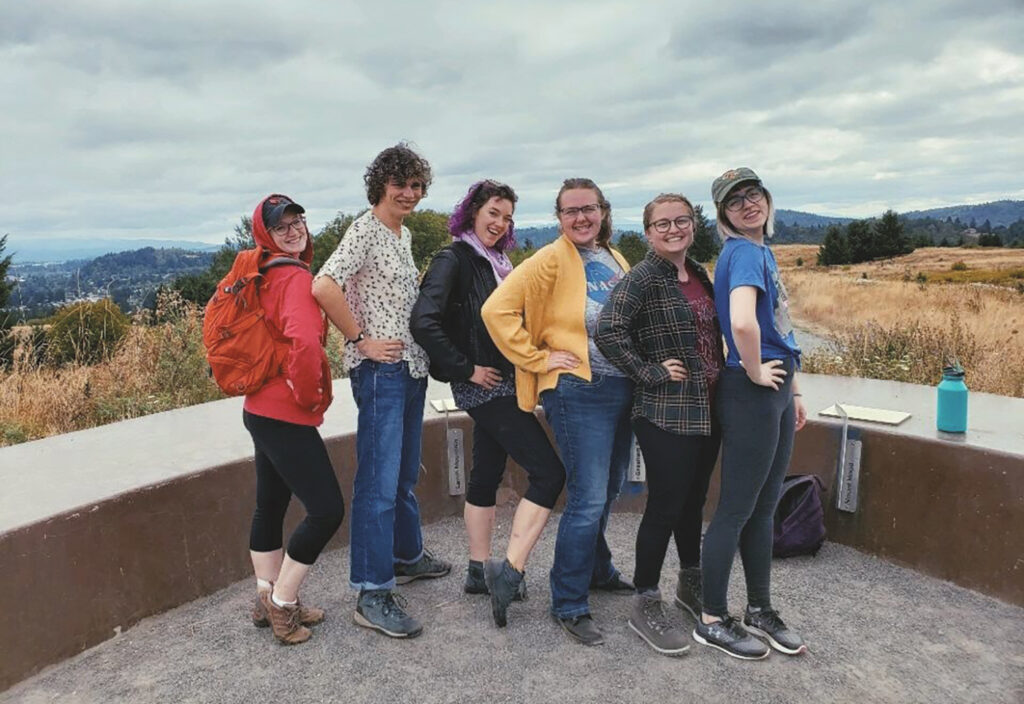
When it came time to decide what to do after college, I knew I wanted to spend my time making the world a better place. With Quaker Voluntary Service (QVS), I found a way to do mission-driven work while being supported by a spiritual community. QVS is a year-long fellowship program for young adults, and it exists at the intersection of transformational spirituality and activism. I was placed in Portland, Oregon, where I worked with the nonprofit Oregon Physicians for Social Responsibility, organizing for environmental justice and nuclear weapons abolition. The program was an incredibly great fit for me, and served as a vital bridge between my college bubble years and the real world. At our biweekly QVS days, we had space to reflect on how our social justice work connected to our spiritual journeys, all while being in an intentional community, with the joys and challenges that brings.
The local Quaker community welcomed us with open arms, handmade quilts, and many homemade canned goods. My QVS year taught me that it is possible to live in an intentional community where people look out for each other and support each other’s commitment to activism.
I learned that organizing can be fun, even on things as scary as climate change and abolishing nuclear weapons. The first time I ate tamales was at a nuclear weapons forum event where we brought together organizers and activists from all walks of life and movements; people spoke earnestly about the harrowing truths, harm, and threats of nuclear weapons, while eating tasty food and building community.
I learned that you can pass a ballot measure to force large corporations to pay for clean energy projects. The first time I rode an electric scooter was to go from the campaign headquarters to the victory celebration for the Portland Clean Energy Fund, and I truly don’t think I’ve ever felt more elated.
I learned that there are many different ways to create change. Throughout my QVS year, I listened in awe to my housemates’ stories about their direct service work with people experiencing homelessness. This helped me clarify that advocacy and organizing work is the right fit for me.
My interpretation of Quakerism is that it invites us into our own relationship with the Divine, free of intermediaries. There is no adult trying to convince us to believe something.
Our communities and planet face a lot of daunting challenges, but another world is possible. Bringing motivated young people together and providing them with the resources and support they need to take action seems like one of the best strategies to address these challenges.
And that brings me to my current phase of life. When the COVID pandemic swept through the world and I found myself anxious and isolated in a new city, it was again Quakerism that grounded me in the community. I started attending Adelphi (Md.) Meeting in the Zoom-only era, meeting friendly strangers in little boxes on my computer screen. Even with the lack of in-person connection to start, I felt the warmth of their welcoming and the weightiness of their community, so I kept coming back.
I joined an antiracism book club that is still going strong after two years. I volunteered for the Outreach and Fellowship Committee, where I help greet people on Sunday mornings, cultivate relationships within the meeting, and reach out to communities who haven’t found us yet. One specific way that Adelphi Meeting has been staying connected to young adults who live further away is by sending them care packages in the spring. Who wouldn’t love to receive a surprise box filled with tasty treats and a handmade card?
Now that I am in a phase of my life without strong affiliations to a school or program, I see that cultivating community can be difficult. For me, and likely many other young people, Friends meetings can be a place to find that community.
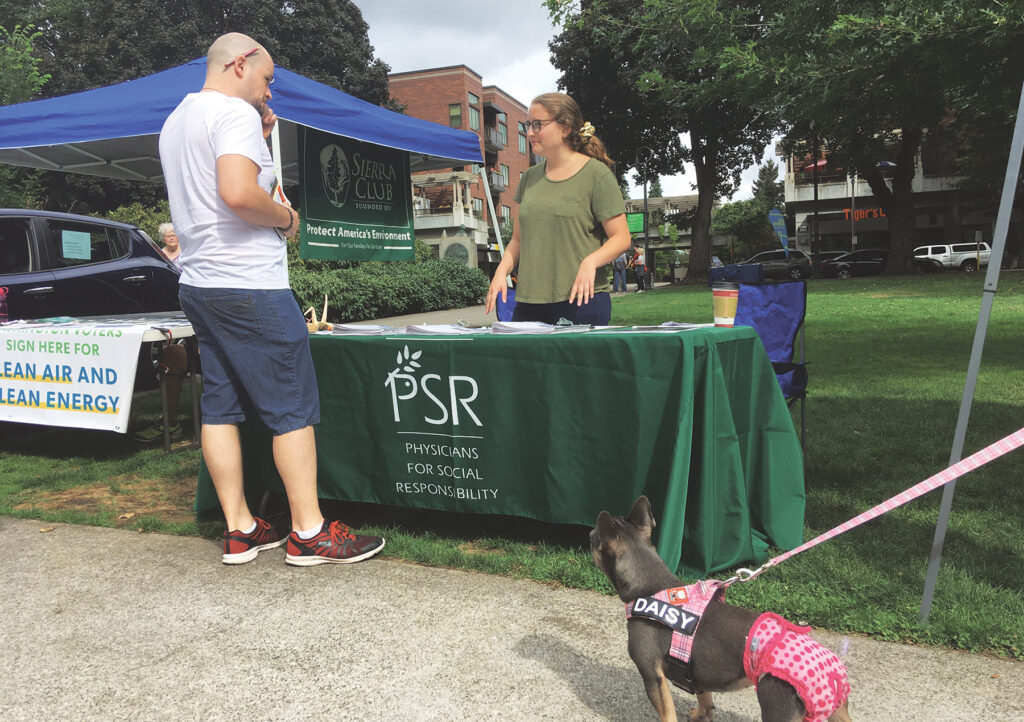
In a world that is constantly telling us what to think, bombarding us with content and monetizing our attention, Quakerism can be a respite. My interpretation of Quakerism is that it invites us into our own relationship with the Divine, free of intermediaries. There is no adult trying to convince us to believe something. We can choose our own words to define a higher power. I have found comfort in rejecting the masculine and patriarchal depictions of God from other religious spaces and instead leaning into concepts of the Divine Light.
While the emphasis on silence and thinking for yourself can be jarring for many who are used to noise, distraction, and a strict path to follow, I’ve found this freedom to be liberating. Quakerism invites us to follow our own instincts: to seek our own truth that is already inside of us and chart our own course, which, in my experience, is a lot like the process of growing up.
Young people have strong imaginations. They see opportunities. They can envision the world as it should be and are less jaded about the way things are. My hope for the future is fueled by the remarkable activism I see from young folks. Quakerism can be a vessel for young people to do this imagining and activity in a supportive community. I believe that there are many people out there—of all ages but especially younger folks—who crave Quakerism and the community it fosters. We need to meet them where they are and create opportunities for them to find us.
We should invest in programs like Quaker Voluntary Service, schools like Haverford College, and maybe even start new programs as resources allow. We need to push ourselves to be more visible in the world. We should let our lives speak and be unapologetically ourselves, while maintaining a commitment to openness, change, and increasing diversity. We need to cultivate our ability to reimagine both the future and the present as places in which we live in abundance: an abundance of people, relationships, resources, and spiritual fulfillment alongside the young people in our midst.
In an article for YES! magazine called “Murmurations: Grow the Chorus,” writer and activist adrienne maree brown shares an inspiring vision for the younger generation:
I feel the work of our generation may be to correct wrong answers that leave us hungry, to unweave crooked spells and unravel the nets in which we have caught the future. Rather than insist on answers, we must be willing to deconstruct everything until we find all the seeds of what we are meant to be, then press those seeds into restored, turned earth and see what else we can grow from our miraculous potential.


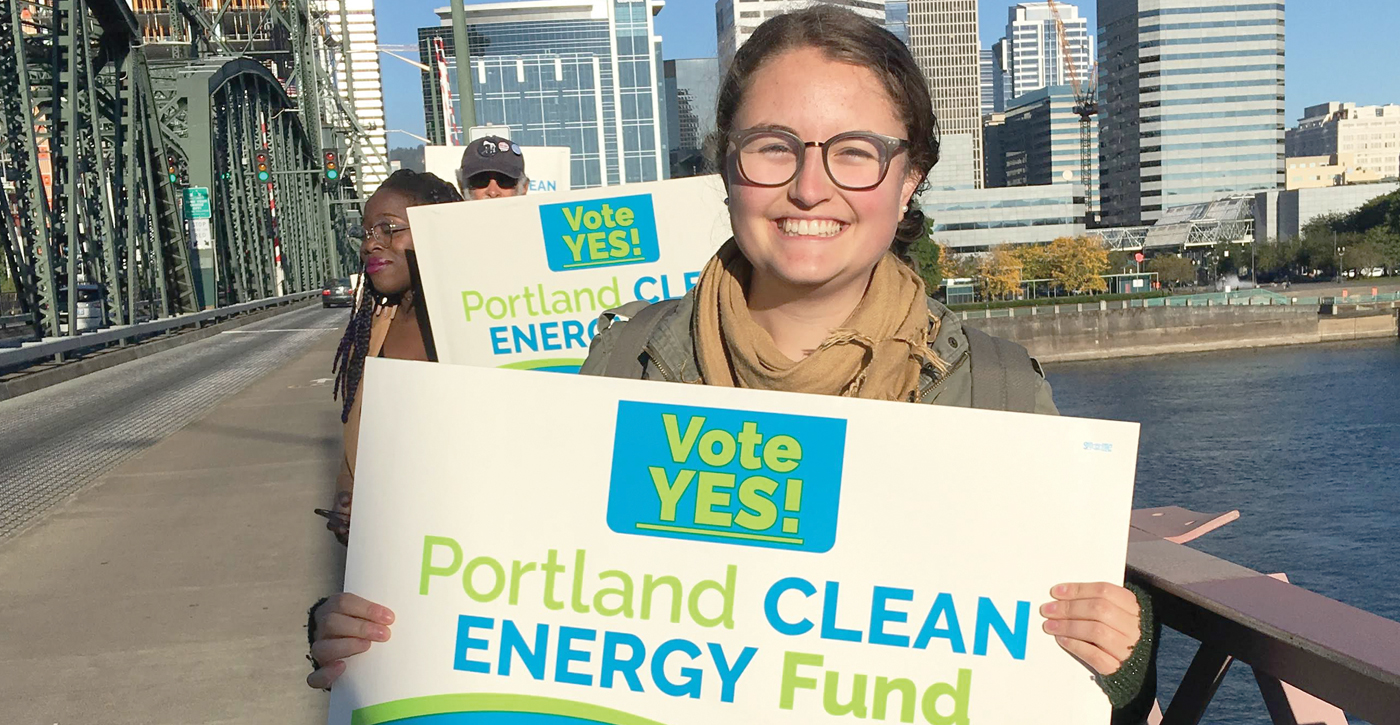
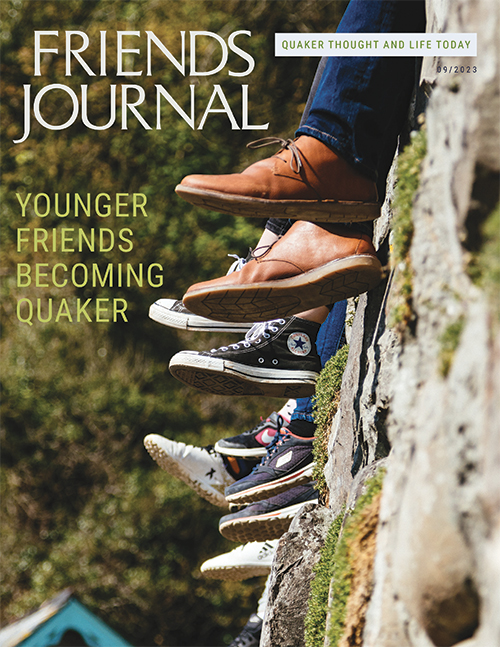
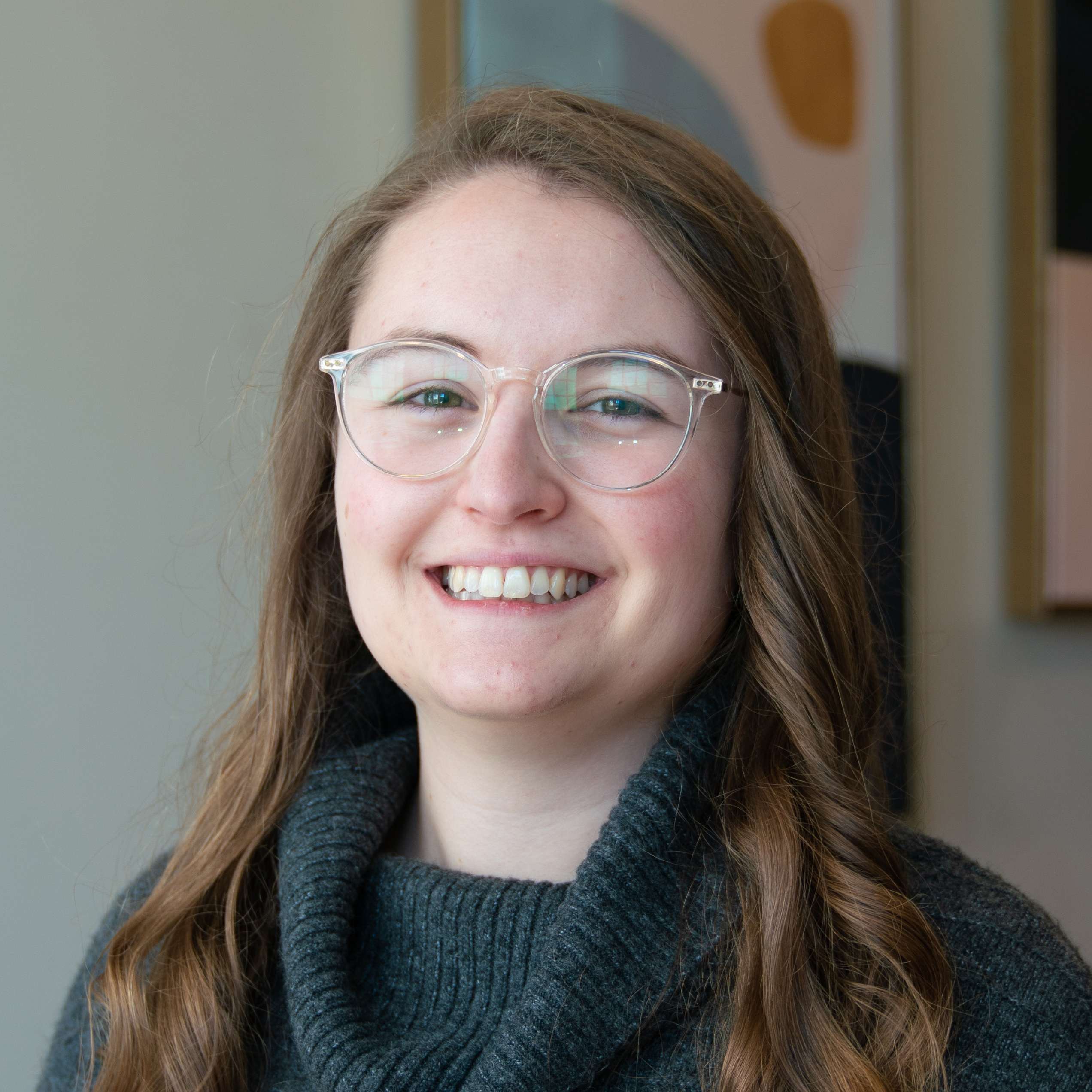
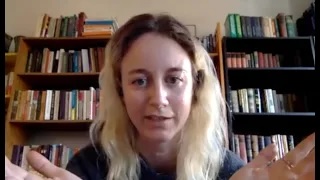

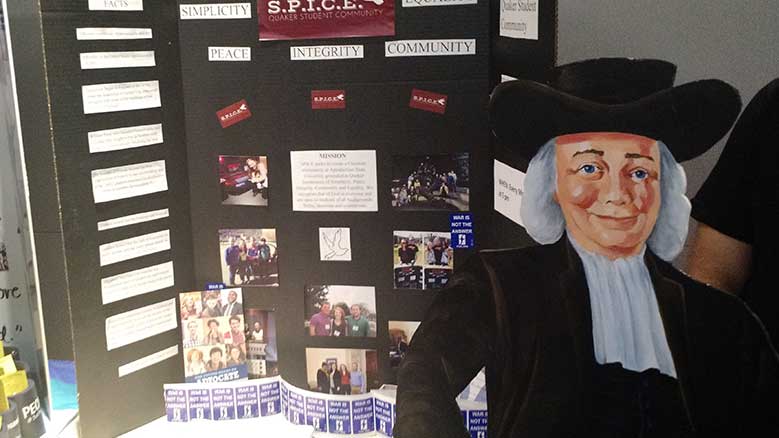
Comments on Friendsjournal.org may be used in the Forum of the print magazine and may be edited for length and clarity.